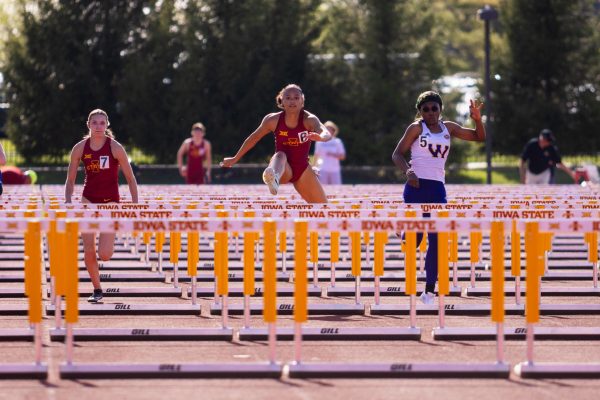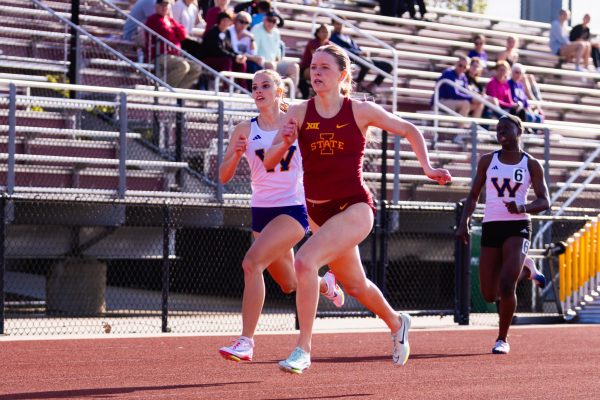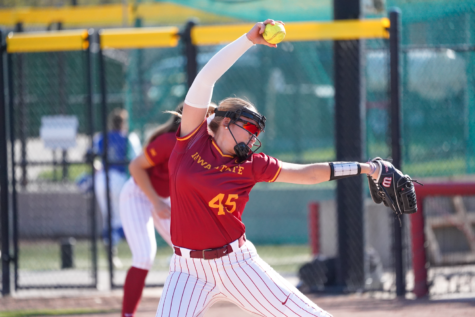Volunteerism drives the Special Olympics
May 21, 2002
Over 3,000 athletes took part in last weekend’s Special Olympics Iowa summer games held in Ames, but that was only part of the story.
Somewhere around 700 volunteers also took part in the event, according to university games chair Lana Voga.
“It takes hundreds of volunteers for the three day event, and they keep coming back,” Voga said. “That’s great because it helps everything run so smoothly. It just happens. We tell people it’s magic.”
And it’s not just students that volunteer. Voga said that senior groups, members of the greek community and grade-school children as young as fourth- and fifth-graders volunteer their time and energy for the event.
This is the 16th year that Voga has been involved with Special Olympics. She said she began a volunteer in the developmental events, which are open to the athletes in wheelchairs.
“I went to that and I was hooked,” Voga said. “I volunteered for a half-day and ended up staying the whole day because I could just not believe . it just gets your heartstrings.”
Rich Fellingham, the president of Special Olympics Iowa estimated the number was closer to 1,500.
Fellingham said he also got involved with Special Olympics by volunteering. He donated time every year for over a decade before becoming the president five and half years ago. He said he hasn’t had a single regret since taking the job and called it a “great move.”
“It’s hard to point out one specific (moment that’s special), because every race, every time you see an athlete get a medal put around them is a high moment,” Fellingham said. “It’s so thrilling for them to see what they’ve accomplished.”
The Special Olympics officially got its start in 1968 when Senator Edward Kennedy announced the establishment of Special Olympics, Inc. The organization has expanded since then to include over one million athletes from more than 150 countries, according to the Special Olympics Iowa program guide.
Special Olympics Iowa features events ranging from equestrian, to bowling, to cheerleading. The winter games are held every year in Dubuque and the mid-winter games take place in Iowa City. State tournaments of some individual sports are also held around the state throughout the year.
Despite being strongly associated with sports, Fellingham pointed out that it’s about much more than that. He said the sportsmanship, encouragement and effort you see is something to behold.
He noted that the Special Olympics are “totally different” from Division I athletics.
“Before every competition they recite the oath . and they live by that,” Fellingham said. “If they finish second or third you see them smiling and congratulating the ones that won.”
Voga said Special Olympics Iowa receives support from businesses and private donations. Iowa State University also plays a part in the event by paying staff members, and donating the use of several venues. She estimated the donations’ value at $50,000.
“If you’ve never experienced it, there’s no way to describe it to anyone,” Voga said. “It’s just unbelievable what these athletes can do, what their skill levels are and what great attitudes they have.”
















